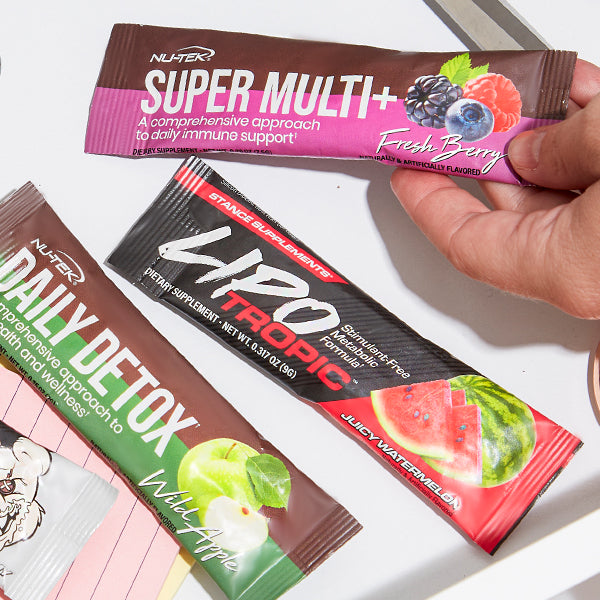Did you know that 73 percent of the United States food supply is ultra-processed? That is what recent research from Northeastern University’s Network Science Institute indicates. Now, imagine walking down the grocery store aisle, grabbing your favorite snack, and noticing a bold warning stating that your treat-of-choice is “ultra-processed.” While this may sound dramatic, such warnings labels have been implemented in countries like Argentina, Peru and Uruguay, in an effort to help consumers make healthier choices.
But what exactly are ultra-processed foods (UPFs), and why should you avoid them? Let’s break it down.
What Are Ultra-Processed Foods?
UPFs are industrially manufactured products that go through multiple steps of chemical and physical processing. They’re often loaded with added sugars, unhealthy fats, salt, artificial colors, flavors, and preservatives. Examples include chips, pretzels, sodas, instant noodles, frozen desserts, pre-packaged baked goods, and many breakfast cereals. Many fast-food items like tacos, French fries, burgers, and fried chicken are also considered ultra processed. All of these foods are designed to be convenient and hyper-palatable (read: super addictive), making them hard to resist but lacking in any real nutritional value.
Health Risks of UPFs
Recent research has highlighted significant health risks associated with consuming ultra-processed foods (UPFs). A comprehensive review published in The BMJ in February 2024 analyzed multiple studies and found that higher intake of UPFs is linked to increased risks of various health issues, including cardiovascular disease, type 2 diabetes, obesity, and certain cancers.
Specifically, the review reported that greater consumption of UPFs was associated with a 29% increase in the risk of cardiovascular disease and a 34% increase in the risk of all-cause mortality. Additionally, a study published in the American Journal of Epidemiology in March 2022 found that higher UPF intake was linked to a 25% increase in the risk of developing type 2 diabetes. Other sources say the numbers are much, much higher than reported.
Why You Should Avoid Them
Here are five compelling reasons to minimize your intake of ultra-processed foods, STAT:
1. Weight Gain
Research shows that consuming an ultra-processed diet can lead to overeating—often adding an extra 500 calories per day—and weight gain. Plus, these foods tend to be addicting, so you want to eat more and more. Over time, too much weight gain can lead to serious metabolic diseases.
2. Nutritional Deficiencies
UPFs may say they contain nutrients like vitamins and minerals, but these are often added artificially and don’t provide the same benefits as nutrients as whole foods. Filling up on UPFs means you’ll most likely eat fewer nutrient-dense foods like fruits, vegetables, lean proteins, and whole grains, leading to deficiencies in fiber, essential fatty acids, and other critical nutrients.
3. Harmful Additives
UPFs often include a bevy of additives, such as artificial flavors, colors, emulsifiers, and preservatives. While these ingredients improve shelf life and taste, they’ve been linked to inflammation, gut microbiome imbalances, and potential long-term health risks. For example, some preservatives like BHA and BHT have been criticized for their possible carcinogenic effects.
4. Addictive Qualities
Ever find it hard to stop eating certain snacks? That’s no accident. UPFs are engineered to appeal to your senses, triggering a dopamine response in your brain similar to addictive substances. This can lead to overconsumption and a cycle of unhealthy eating habits, making it harder to maintain a balanced diet.
5. Environmental Impact
Beyond their effects on your health, UPFs have a significant environmental footprint. They’re often made with low-cost ingredients derived from monoculture farming, which depletes soil health and contributes to deforestation. Additionally, their packaging generates large amounts of plastic waste, further harming the planet.
How to Spot and Avoid Ultra-Processed Foods
Ultra-processed foods typically have long ingredient lists with items you wouldn’t recognize or keep in your kitchen. Look out for terms like “high-fructose corn syrup,” “hydrogenated oils,” and “emulsifiers.” Here are four practical tips to reduce your intake:
- Stick to Whole Foods: Opt for fresh fruits, vegetables, whole grains, lean proteins, and nuts.
- Plan Ahead: Pack homemade snacks like trail mix, sliced veggies with hummus, or hard-boiled eggs.
- Read Labels: Choose products with five or fewer recognizable ingredients.
- Limit Treats: It’s okay to enjoy ultra-processed foods occasionally, but aim for moderation.






